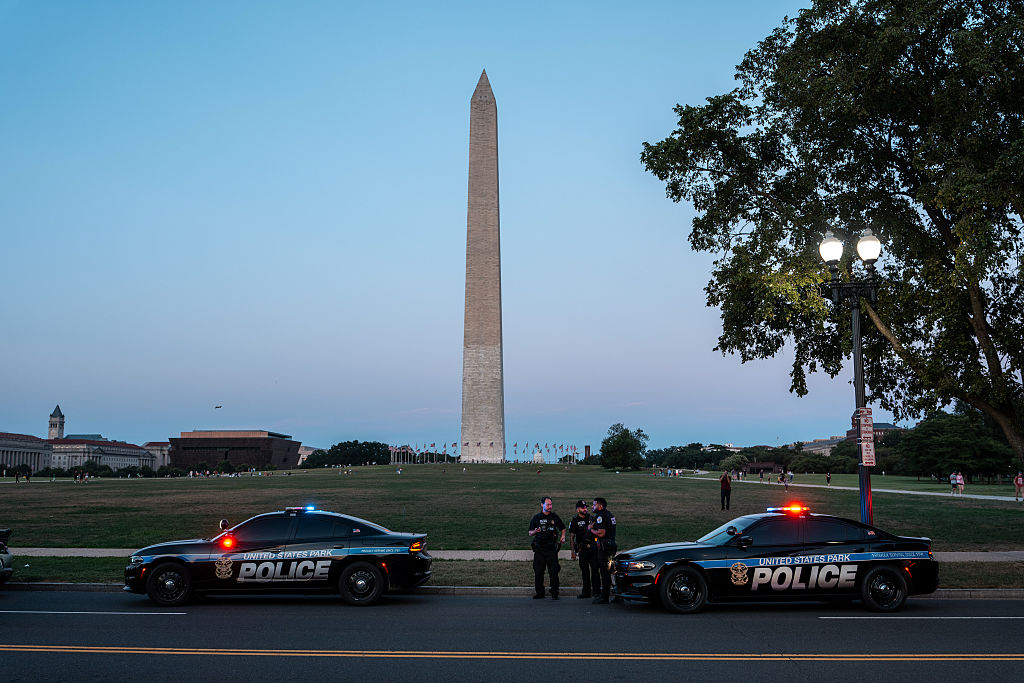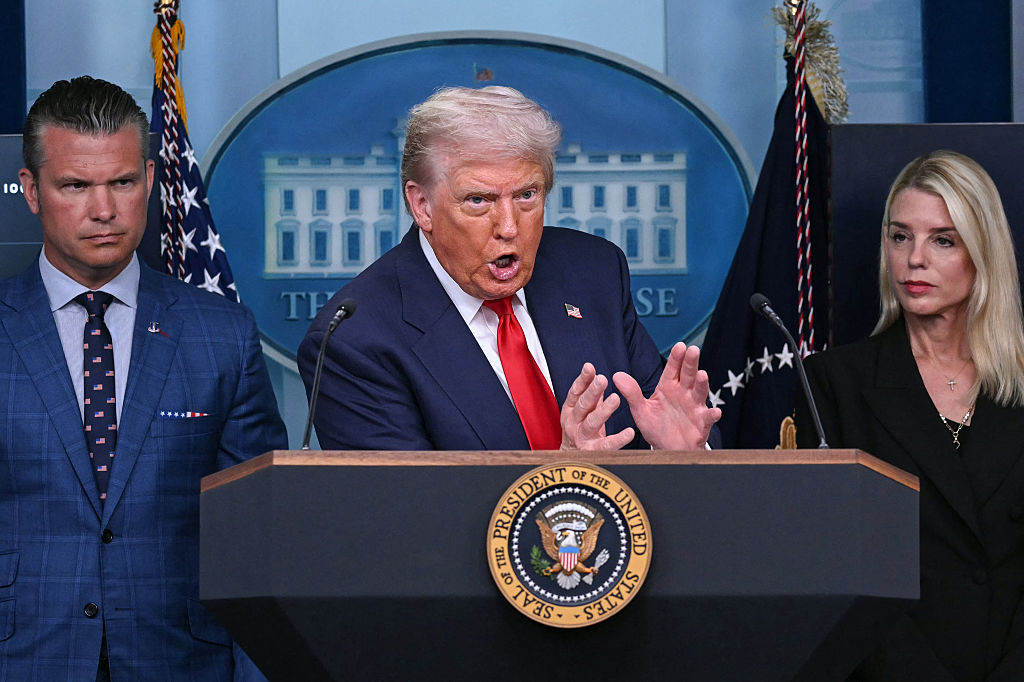What will a Joe Biden foreign policy look like? It’s difficult to say. There is, after all, no Biden Doctrine, no voluminous body of work hashing out the Biden sensibility. Biden might have served as vice president, but he never seemed anywhere near the center of the policymaking apparatus. He was a fixture on the Foreign Relations Committee, but he was never one of the Senate’s bright international thinkers the way his friend John McCain was.
So what then? About the best you can say about Biden’s foreign policy positions is that they’ve been scattershot. He opposed the Gulf War in 1991, voted in favor of the Iraq War in 2003, said later he regretted that support, opposed the troop surge of 2007, supported a three-part decentralization of Iraq along sectarian lines and then vowed during the 2020 campaign to bring most of the troops home. He supported the war in Afghanistan to depose the Taliban; he now wants to pull some forces out of Afghanistan amid a resurgent Taliban. He held the line on Barack Obama’s schizophrenic Syria policy, reportedly tried to talk him down from invading Libya, and now says he’ll end American support for the Saudis’ inhumane war on Yemen. He’s a fan of Nato. He likes the UN.
There isn’t a lot of consistency there, though if you had to pluck out a single thread, it would probably be that of liberal internationalism. Biden, in common with many Democrats, sees a leadership role for America in the world, with occasional interventions necessary to stop genocides and humanitarian crises, flanked by coalitions of other nations. He’s a multilateralist, an Atlanticist, a firm believer in the power of alliances. He’s more hawk than dove — he isn’t about to dismantle the American empire as a Tulsi Gabbard might try to do. But he’s also uncomfortable with Donald Trump’s willingness to buck allies and act alone.
This is a foreign policy rooted in the mythology of the Cold War, when there was an antithetical global adversary in the Soviet Union and America rallied other western nations against it. Such an approach can be stubborn, set in amber: it isn’t always comfortable acknowledging the mistakes of the past. It might clear its throat on occasion and announce that of course Iraq was a blunder, as Biden did during the 2020 campaign. But it also, however unconsciously, buys into the idea that the United States needs to remain a world policeman.
Back in the days of yore, before we were all forced to genuflect before the woke, Biden in the Senate could sound like a kind of Irish cop. His thundering speeches suggested a world of guardian police and scruffy criminals, homeland security pros and terrorist renegades. During a Senate hearing in 2002, Biden bragged to a panel of law-enforcement agents, including a smirking Robert Mueller, that he’d stood with them even more staunchly than the Republicans had, because back in 1994 he’d written legislation that would later become the Patriot Act. ‘It was defeated then by the folks who were worried we’d have the Minutemen, would get in trouble,’ he said. ‘By the Mr Barrs of the world, who were worried about the right wing.’
This is the Biden way: give the good guys the tools they need to haul the bad guys down to the station. If that means trampling on civil liberties, well, maybe he will, maybe he won’t. It’s liberal multilateralism meets Gotham, and dividing up the world into friends and foes is key to its psychology. Kamala Harris might have sounded like an idiot when she said at that vice presidential debate that Biden had taught her ‘to be loyal to your friends. People who’ve stood with you, you gotta stand with them. You gotta know who your adversaries are and keep them in check’. But she was also expressing the Biden foreign policy more or less distilled.
Realist cranks like me love to trash George W. Bush, but as Biden shows, Bush’s black-and-white approach to the world has had real staying power, even in the minds of many Democrats. Biden’s nightstick-twirling liberal globalism is thus nothing new; Bush, Bill Clinton and Obama all succumbed to similar impulses. But there’s another dimension to Biden’s thought that truly is novel. Biden views the domestic turmoil of the Trump era not just as a national phenomenon but as an international one. To Biden, Trump isn’t just a third-rate president; he’s part of a global authoritarian axis that includes Turkey’s Recep Tayyip Erdogan and some fellow by the name of Vladimir Putin.
In an oft-cited piece for Foreign Affairs in March, Biden expounded on this view. The dividing line as ever came snaking through, with ‘authoritarianism, nationalism and illiberalism’ on one side forward-looking democracies on the other. ‘The triumph of democracy and liberalism over fascism and autocracy,’ Biden wrote, had defined our past, and it would define our future as well. The challenge now would be for the United States to shore up its democracy at home — read: expunge Trumpism — while standing with its allies against the illiberal menace abroad.
This is the mindset of a second cold war, with the Axis of Trump standing in for the Soviet Union. It has grown prevalent on the left, which has mortgaged off just about every principle it’s ever held in order to remain hysterical about the President. And it’s why I don’t have much hope for a Biden foreign policy, welcome though a return to multilateralism might be. What America needs right now is a clear-eyed assessment of her interests, an acknowledgement of her limits to project power, a focus on ending pointless wars and debt-funded military expenditures, a new realism. Biden’s thinking might sometimes align with this, but ultimately it’s more Paul Wolfowitz than Stephen Walt. Carving up the world into light and dark, shirts and skins, is idealistic not realistic; it presages more conflict not less.
As I write this, Biden has announced that his longtime adviser, Tony Blinken, will be his secretary of state. Establishment commentators have hailed the appointment as ‘refreshingly boring’, apparently in the way that blowing up a Yemeni school bus just loses its thrill after a while. Blinken was an early cheerleader for the barbaric Yemen war (though he did later recant that support). He’s an utterly conventional, hawkish, inside-the-Beltway thinker, as is Biden’s pick for national security adviser, Jake Sullivan.
If Biden wanted to, he could bring in more antiwar voices, Sen. Chris Murphy perhaps, or Rep. Ro Khanna. That he didn’t should be all the indication we need as to what his intentions are. What Biden offers is the hawkish status quo shouted in Scrantonese and calibrated to a nervy Trump-obsessed Washington elite. Call it what you like, but it isn’t change.
This article was originally published in The Spectator’s January 2021 US edition.

























